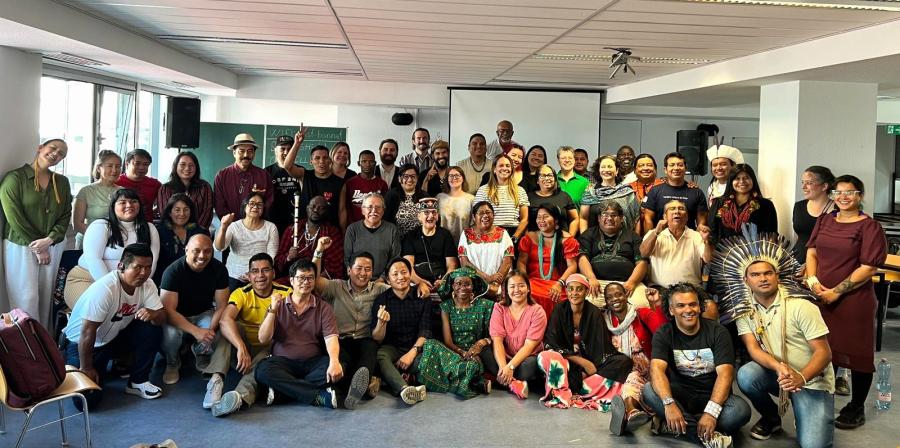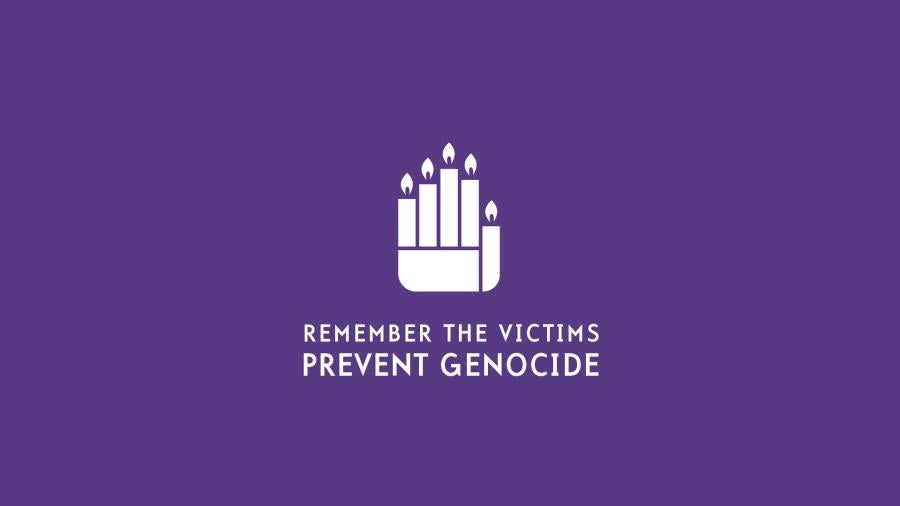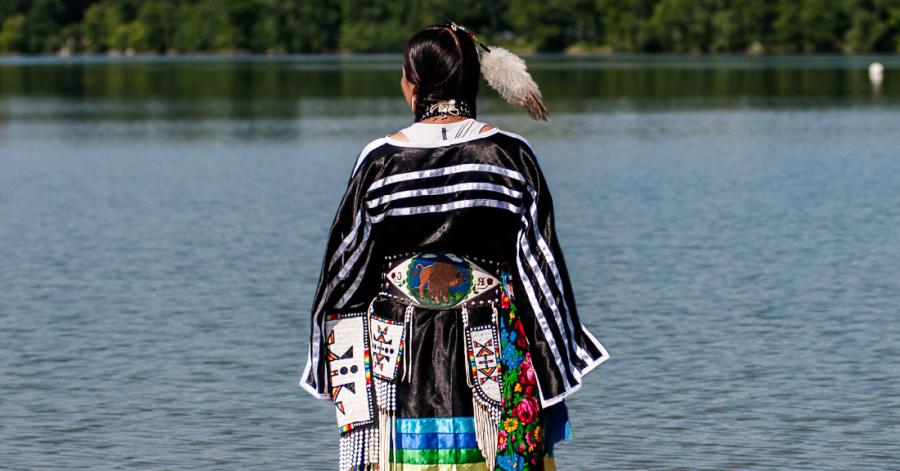
Dear Cultural Survival Community,
Sain Baina, Hundete Nuheduut! Greetings, be well, dear friends. As you may know, I have decided to step down from my role as Executive Director of Cultural Survival to take on leadership at the Securing Indigenous Peoples’ Rights in the Green Economy (SIRGE) Coalition, of which Cultural Survival is a founding member. To meet the challenges posed by the “green” energy transition, I feel called to focus my full attention on addressing the growing pressure Indigenous Peoples face from the extractive industry through the work of the Coalition.
Today is my last day as Executive Director, and I would like to share some reflections with you. First, I want to share my heartfelt gratitude and deep appreciation for your ongoing support and dedication to uplifting the rights of Indigenous Peoples worldwide and for the support and trust you have given to Cultural Survival to fulfill our mission to advocate for Indigenous Peoples' rights and support Indigenous communities’ self-determination, cultures, and political resilience.
Being an Indigenous woman leader is not an easy path. We are living and functioning in a world with vast imbalances of power and privilege rooted in colonial and deeply extractive systems, and generational trauma inflicted upon Indigenous Peoples is still very much present and alive. For many, this work is taking a toll on their spirit and physical well being. Building a new world that is based on values of reciprocity, deep respect, and healing can be challenging but is absolutely necessary. I salute all Indigenous women leaders who, despite everything, keep challenging the patriarchal systems and the status quo. I call on our Indigenous brothers, youth, and allies to elevate women leaders and continue supporting Indigenous women's leadership in all spaces.
When I stepped into this role four and a half years ago, I could not have imagined that a few months into my tenure, the world would go into a lockdown. The impacts of the COVID-19 pandemic disproportionately hit many Indigenous communities, and right away, we strategized about what to do to support communities. We mobilized and came up with an action plan. We were able to build on our key organizational strengths: an extensive network of radio stations with an estimated listenership of up to 50 million people, for whom radio is the primary source of information; the ability to create in-house radio content; and most importantly, our relationships with over 500 communities around the world who informed us about the situations on the ground.
Our team deployed volunteers from these communities to translate radio public service announcements into Indigenous languages to reach marginalized communities who lacked access to information about COVID-19 in their native languages. We acted diligently, providing much-needed financial support to radio stations. Within days, we started recording public service announcements and distributing them to our network. Our funding partners, who understood the need for urgent support to communities, came through with grants to channel the funding for grassroots efforts. As a result, we reached many remote communities via radio with over 800 life-saving radio programs and materials in over 150 Indigenous languages and redistributed financial resources for emergency support to 60 communities in 19 countries.
Parallel to our COVID-19 response, we started dreaming and drafting a new strategic plan. We met online and took stock, reviewing our programs and contributions to the Indigenous rights movement, celebrating our accomplishments, and identifying our weaknesses and blind spots. We conducted an extensive survey that included our grant partners, Indigenous leaders, Indigenous community radio stations, funders, and nonprofit organizations who provided insight into the future work of Cultural Survival and our programmatic priorities. We adopted a plan that encompasses a holistic thematic approach focusing on Indigenous climate solutions, lands and livelihoods, languages and cultures, and community media. The focus on Indigenous women and youth is at the heart of all these themes.
We agreed on a four-pronged approach of advocacy, capacity building, communications, and grantmaking to achieve results set forth by the thematic areas. Our new strategic framework became the catalyst for profound change, bringing the necessary tools and resources that allowed us to build our internal capacity by doubling our staff size from 20 to 42, increasing our budget from $2.5 million in 2019 to $9 million in 2024, and deepening our impact on the ground. Since 2019, we have funded 257 Indigenous community projects in 30 countries totaling $1,363,010; 251 media projects in 29 countries totaling $1,424,561; supported more than 200 youth fellows; won a precedent-setting case at the Inter-American Court on Human Rights, advocated at the European Union for inclusion of Indigenous rights in corporate due diligence and raw materials legislation, and so much more!
The impetus for starting the SIRGE Coalition began in May 2020 when a group of Russian Indigenous leaders reached out to Cultural Survival in the aftermath of an ecological disaster in the Russian Arctic where 21,000 tons of diesel were spilled into a local river, decimating the fishing grounds of Indigenous communities. We started a global campaign against NorNickel, the world's largest nickel producer. The campaign gathered efforts from multiple Indigenous leaders and Indigenous-led and allied organizations, which later turned into a well organized network and the SIRGE Coalition, which we officially launched in August of 2022. We quickly learned the scope of the problems and the extent to which transition minerals are affecting Indigenous communities globally, and the proximity of the sources of transition minerals to Indigenous lands. We encountered stories of Indigenous communities affected by mining for transitional minerals worldwide in the U.S., Guatemala, Bolivia, Argentina, Chile, Indonesia, Sweden, Peru, Russia, and other countries. The lessons learned and experiences from our NorNickel campaign can be applied in support of communities around the world, and this is the work I am being called to lead as the next chapter of my life.
None of these achievements could have been possible without the dedication of our talented grant partners, fellows, Cultural Survival’s amazing staff, Board, and supporters like you.
I look forward to our continued partnership and journey together, implementing the rights of Indigenous Peoples enshrined in the UN Declaration on the Rights of Indigenous Peoples and working towards a peaceful, sustainable, and balanced world for all. This is not a goodbye, but rather a ‘hello again!’ Together, we can build a future where Indigenous Peoples lead the way toward a sustainable and prosperous existence by supporting humanity through Indigenous knowledge and values.


Galina Angarova (Buryat)
Executive Director



